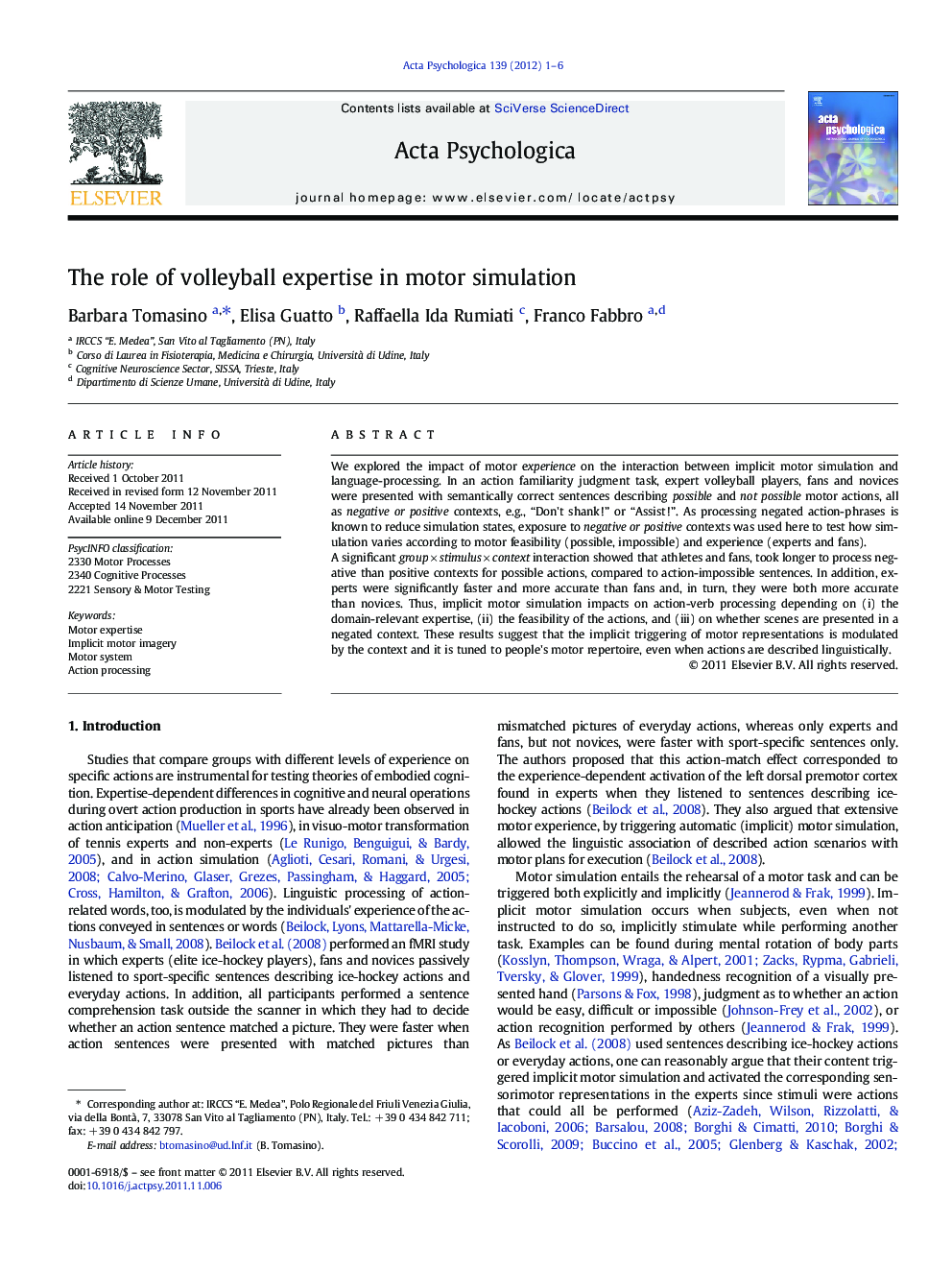| Article ID | Journal | Published Year | Pages | File Type |
|---|---|---|---|---|
| 920088 | Acta Psychologica | 2012 | 6 Pages |
We explored the impact of motor experience on the interaction between implicit motor simulation and language-processing. In an action familiarity judgment task, expert volleyball players, fans and novices were presented with semantically correct sentences describing possible and not possible motor actions, all as negative or positive contexts, e.g., “Don't shank!” or “Assist!”. As processing negated action-phrases is known to reduce simulation states, exposure to negative or positive contexts was used here to test how simulation varies according to motor feasibility (possible, impossible) and experience (experts and fans).A significant group × stimulus × context interaction showed that athletes and fans, took longer to process negative than positive contexts for possible actions, compared to action-impossible sentences. In addition, experts were significantly faster and more accurate than fans and, in turn, they were both more accurate than novices. Thus, implicit motor simulation impacts on action-verb processing depending on (i) the domain-relevant expertise, (ii) the feasibility of the actions, and (iii) on whether scenes are presented in a negated context. These results suggest that the implicit triggering of motor representations is modulated by the context and it is tuned to people's motor repertoire, even when actions are described linguistically.
► We explored the impact of motor experience on imagery in language-processing. ► Athletes fans and novices performed an action familiarity judgments task. ► Possible and not possible actions as negative or positive contexts were presented. ► Athletes and fans showed longer RTs for negative possible actions only. ► Imagery impacts action-verb processing depending on the expertise.
